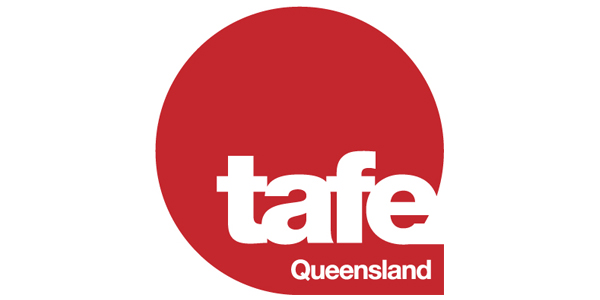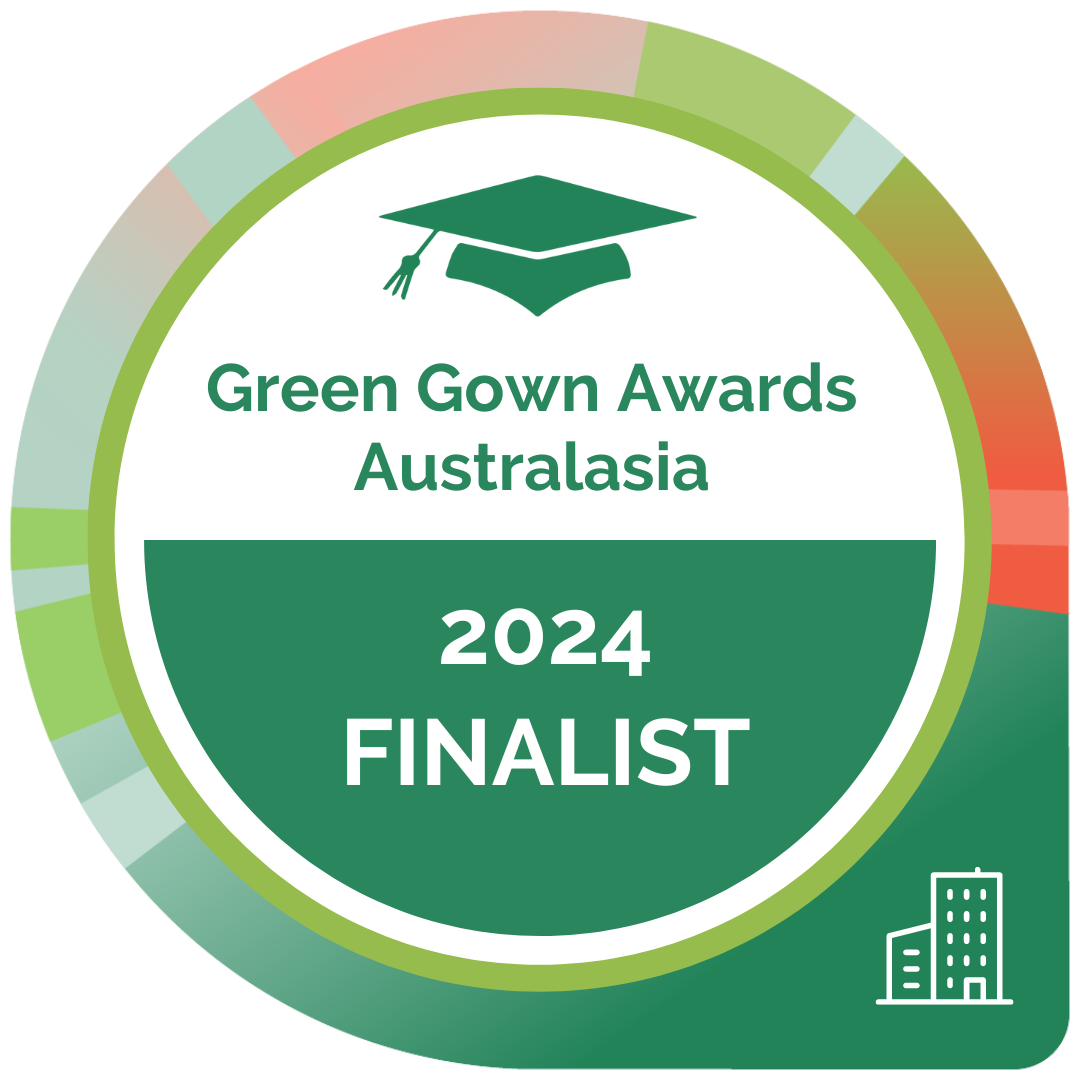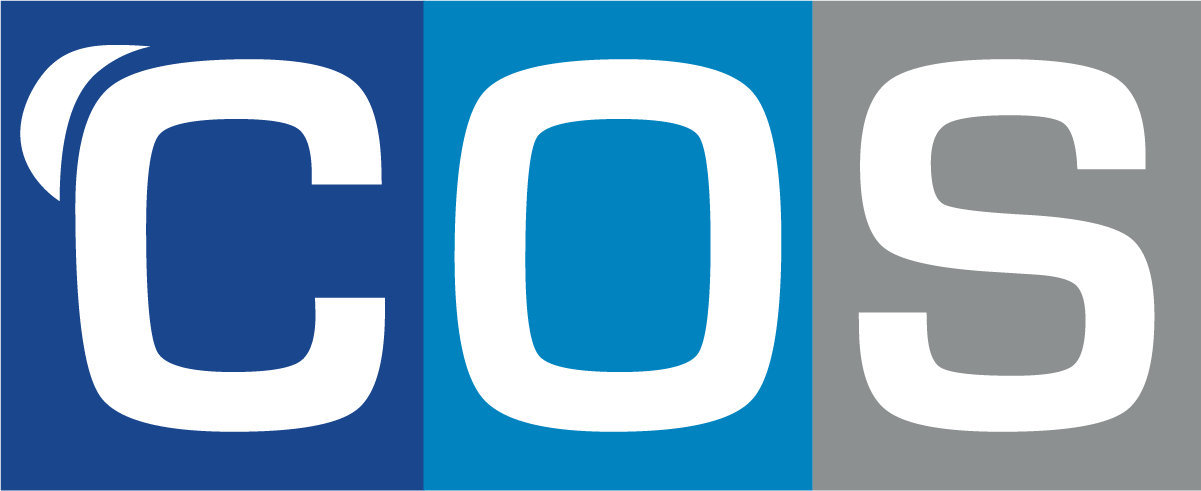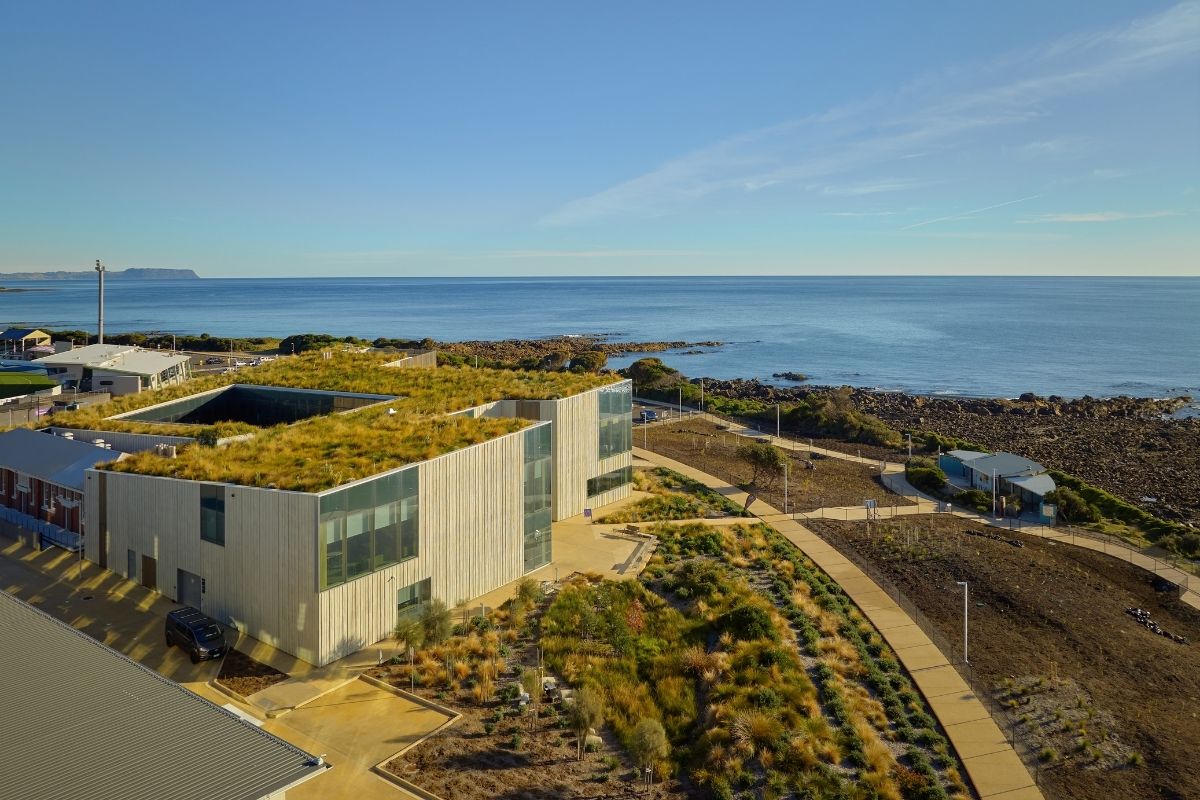Sustainability Institution of the Year category
TAFE Queensland’s Robina Campus stands as a model of sustainability in vocational education, embodying the principles of the United Nations Sustainable Development Goals (SDGs) across its operations, curriculum, and community engagement. Opened in July 2022, the campus has been purposefully designed to integrate sustainability into every facet of its infrastructure and educational approach. With a commitment to creating a dynamic learning environment, the campus features state-of-the-art facilities, eco-friendly live training venues, and a curriculum that embeds sustainability practices throughout. This initiative has positioned the Robina Campus as a leader in sustainability within the educational sector, with a focus on fostering a culture of environmental stewardship among students, staff, and the broader community.
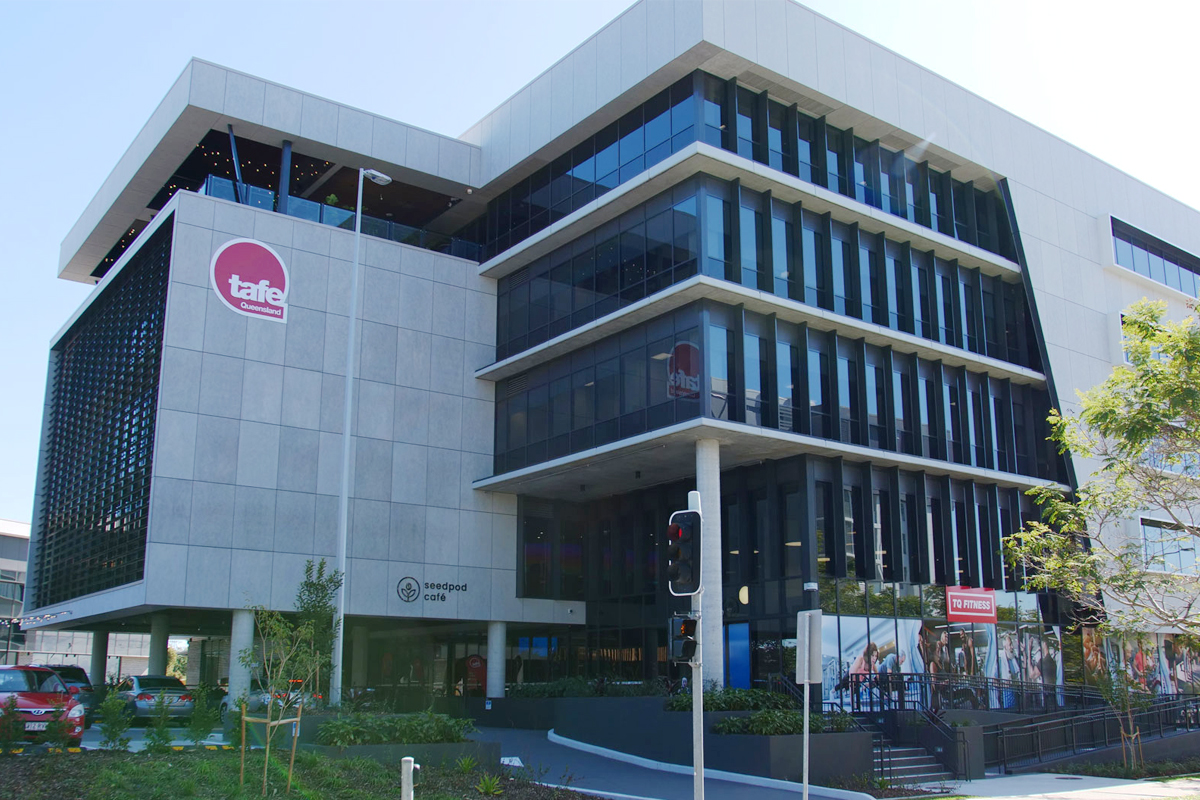
Environmental and Social Benefits
- Significant Waste Reduction: The campus has achieved a 67% reduction in landfill waste and a 56% reduction in water consumption since opening, supported by rigorous recycling programs and the use of a 24-hour composter that turns organic waste into soil conditioner for a local urban farm.
- Energy Efficiency: Approximately 25% of the campus’s energy needs are met through solar power, with additional solar installations planned. The use of energy-efficient equipment and a Building Management System (BMS) further optimises energy consumption.
- Community Engagement: The campus engages students, staff, and the local community in sustainability initiatives, such as waste reduction campaigns, partnerships with local farms, and educational workshops, fostering a shared commitment to environmental responsibility.
Leadership and Engagement
- Collaborative Governance: The project was guided by a robust governance structure, including a Steering Committee and sub-committees that oversaw every aspect of the campus’s development. This collaborative approach ensured alignment with the SDGs and fostered strong engagement from all stakeholders.
- Professional Development: All educators at the Robina Campus underwent a nine-month professional learning program to embed sustainability knowledge into their teaching practices. This initiative ensures that sustainability is not only taught but also practiced and modelled within the campus community.
- Active Partnerships: The campus has formed partnerships with local businesses, schools, and non-profits to enhance training and employment outcomes while advancing the SDGs. These partnerships have been critical in creating a campus environment that is both educational and sustainable.
Significance to the Sector
- Innovative Design and Curriculum: As the first vocational education and training campus in Australia to be designed with such a comprehensive focus on sustainability, the Robina Campus sets a new standard for the sector. Its integration of recycled materials in the building fit-out, eco-friendly live training facilities, and technology-enabled learning spaces exemplifies best practices in sustainable education.
- Global Recognition: The campus has earned multiple accolades, including a Silver Award of Excellence from the World Federation of Colleges and Polytechnics (WFCP) for Sustainable Development Goals and a Silver Rating in the Sustainability Tracking Assessment and Rating System (STARS). These achievements highlight the campus’s leadership in sustainability on an international scale.
- Replicability and Impact: The innovative approaches and successful outcomes of the Robina Campus are being shared across TAFE Queensland’s 60 campuses and beyond, providing a replicable model for other educational institutions worldwide. The campus serves as a case study in how to effectively integrate sustainability into vocational education and training.
Wider Societal Impact
- Economic Growth and Job Creation: The Robina Campus has driven significant economic growth in the local community, with a 376% increase in student enrolments and a corresponding rise in employment opportunities. The campus’s focus on green skills training ensures that graduates are well-equipped to contribute to the emerging green economy.
- Social Equity and Inclusion: The campus promotes inclusivity and social equity through its accessible and flexible learning spaces, which are designed to support all students, including those with disabilities. The emphasis on gender equality and well-being further strengthens the campus’s role in advancing social sustainability.
- Cultural and Environmental Stewardship: By embedding sustainability into the curriculum and campus culture, the Robina Campus instils a sense of environmental stewardship in its students and staff. This commitment extends to the broader community through public events, partnerships, and ongoing education initiatives that promote sustainable practices.
TAFE Queensland’s Robina Campus is a shining example of how vocational education can lead the way in sustainability. Through its innovative design, comprehensive curriculum, and strong community engagement, the campus not only provides high-quality education but also serves as a catalyst for environmental and social change. Its success as a sustainability leader within the educational sector underscores the importance of integrating the SDGs into all aspects of institutional operations and highlights the campus’s potential to inspire similar initiatives globally.
Top 3 learnings
Category finalists
Sustainability Institution of the Year/Winners
Sustainability Institution of the Year/Winners
Sustainability Institution of the Year
Sustainability Institution of the Year
Past winners
Benefitting Society/Winners
Benefitting Society/Winners
Diversity, Equity & Inclusion in Sustainability/Winners
Diversity, Equity & Inclusion in Sustainability/Winners
Climate Action/Winners
Climate Action/Winners
Sustainability Institution of the Year/Winners
Sustainability Institution of the Year/Winners
Creating Impact/Winners
Creating Impact/Winners
Creating Impact/Winners
Creating Impact/Winners
Top 3 learnings
Sustainability Institution of the Year category
TAFE Queensland’s Robina Campus stands as a model of sustainability in vocational education, embodying the principles of the United Nations Sustainable Development Goals (SDGs) across its operations, curriculum, and community engagement. Opened in July 2022, the campus has been purposefully designed to integrate sustainability into every facet of its infrastructure and educational approach. With a commitment to creating a dynamic learning environment, the campus features state-of-the-art facilities, eco-friendly live training venues, and a curriculum that embeds sustainability practices throughout. This initiative has positioned the Robina Campus as a leader in sustainability within the educational sector, with a focus on fostering a culture of environmental stewardship among students, staff, and the broader community.

Environmental and Social Benefits
- Significant Waste Reduction: The campus has achieved a 67% reduction in landfill waste and a 56% reduction in water consumption since opening, supported by rigorous recycling programs and the use of a 24-hour composter that turns organic waste into soil conditioner for a local urban farm.
- Energy Efficiency: Approximately 25% of the campus’s energy needs are met through solar power, with additional solar installations planned. The use of energy-efficient equipment and a Building Management System (BMS) further optimises energy consumption.
- Community Engagement: The campus engages students, staff, and the local community in sustainability initiatives, such as waste reduction campaigns, partnerships with local farms, and educational workshops, fostering a shared commitment to environmental responsibility.
Leadership and Engagement
- Collaborative Governance: The project was guided by a robust governance structure, including a Steering Committee and sub-committees that oversaw every aspect of the campus’s development. This collaborative approach ensured alignment with the SDGs and fostered strong engagement from all stakeholders.
- Professional Development: All educators at the Robina Campus underwent a nine-month professional learning program to embed sustainability knowledge into their teaching practices. This initiative ensures that sustainability is not only taught but also practiced and modelled within the campus community.
- Active Partnerships: The campus has formed partnerships with local businesses, schools, and non-profits to enhance training and employment outcomes while advancing the SDGs. These partnerships have been critical in creating a campus environment that is both educational and sustainable.
Significance to the Sector
- Innovative Design and Curriculum: As the first vocational education and training campus in Australia to be designed with such a comprehensive focus on sustainability, the Robina Campus sets a new standard for the sector. Its integration of recycled materials in the building fit-out, eco-friendly live training facilities, and technology-enabled learning spaces exemplifies best practices in sustainable education.
- Global Recognition: The campus has earned multiple accolades, including a Silver Award of Excellence from the World Federation of Colleges and Polytechnics (WFCP) for Sustainable Development Goals and a Silver Rating in the Sustainability Tracking Assessment and Rating System (STARS). These achievements highlight the campus’s leadership in sustainability on an international scale.
- Replicability and Impact: The innovative approaches and successful outcomes of the Robina Campus are being shared across TAFE Queensland’s 60 campuses and beyond, providing a replicable model for other educational institutions worldwide. The campus serves as a case study in how to effectively integrate sustainability into vocational education and training.
Wider Societal Impact
- Economic Growth and Job Creation: The Robina Campus has driven significant economic growth in the local community, with a 376% increase in student enrolments and a corresponding rise in employment opportunities. The campus’s focus on green skills training ensures that graduates are well-equipped to contribute to the emerging green economy.
- Social Equity and Inclusion: The campus promotes inclusivity and social equity through its accessible and flexible learning spaces, which are designed to support all students, including those with disabilities. The emphasis on gender equality and well-being further strengthens the campus’s role in advancing social sustainability.
- Cultural and Environmental Stewardship: By embedding sustainability into the curriculum and campus culture, the Robina Campus instils a sense of environmental stewardship in its students and staff. This commitment extends to the broader community through public events, partnerships, and ongoing education initiatives that promote sustainable practices.
TAFE Queensland’s Robina Campus is a shining example of how vocational education can lead the way in sustainability. Through its innovative design, comprehensive curriculum, and strong community engagement, the campus not only provides high-quality education but also serves as a catalyst for environmental and social change. Its success as a sustainability leader within the educational sector underscores the importance of integrating the SDGs into all aspects of institutional operations and highlights the campus’s potential to inspire similar initiatives globally.
Related finalists
Sustainability Institution of the Year/Winners
Sustainability Institution of the Year/Winners
Sustainability Institution of the Year
Sustainability Institution of the Year
Other finalists
Climate Action

Driving Towards Tomorrow’s Campus with Vehicle-to-Grid EV Technology
As part of Flinders University’s drive to innovate and become a leader in climate action, the University launched its Vehicle-to-Grid (V2G) initiative. This involved installing and maintaining 20x V2G and smart chargers for its growing electric vehicle fleet. Leveraging 100% renewable energy generated by ENGIE’s Willogoleche Wind Farm and Flinders University’s solar power systems, this enables the storage of renewable energy in EV batteries to be discharged on campus during peak demand periods. Hence, allows for these EV fleets to operate as a Virtual Power Plant (VPP) to deliver peak demand management and optimization of behind-the-meter generation.
Overall, this initiative demonstrates the reliability and scalability of bi-directional and uni-directional smart-charging systems for EVs in reducing GHG emissions while facilitating teaching, research, and innovation opportunities. Moreover, it exemplifies a sustainable and innovative solution to scale energy storage technology and increase renewables.
Sustainability Champion – Staff/Winners

Brandan Espe
Environmental Officer / Acting Grounds Supervisor
Brandan has brought over 50 federally listed Endangered species of plant into the James Cook University living collection, many of which have never been cultivated and are found in no other collection in the world.
Of these, over half have been sustainably wild collected, inclusive of field and clone data, so they can be used for ongoing conservation, research and teaching, the remaining being sourced from private and partner organisations through favours of service or trades.
He personally funded the project from 2019-2022, until funding was awarded for the program due to its success, with the program now being engrained into the Universities landscapes for ongoing management should he leave JCU, creating a threatened species legacy collection.
The program has now expanded beyond this, with an additional 48 species now funded for further addition, some of which are only known from less than 5 sightings in history.
Student Engagement

Sustainability Leaders creating real impact!
La Trobe created a unique Sustainability Leaders volunteering program to increase engagement with students on campus and empower them to act against waste and promote sustainability. It included the following initiatives:
- Promoting the reusable crockery implementation,
- Increasing knowledge action of other students on campus to diversion comingled recycling and organic waste from landfill.
- Focus on waste audits and data,
- Improved signage through new waste posters for students living on campus.
- Collaboration with Cirka (our cleaning and waste partner) to create a waste wall and;
- Learning all things sustainability (net zero, biodiversity, waste, reusables, engagement)
These initiatives yielded significant results and with a reduction in waste contamination by almost 40% at the residential buildings and engagement with over 80 groups of people for the Reusable Revolution.
Creating Impact

Where knowledge meets habits: Empowering students for a sustainable tomorrow
Our online Sustainability Challenges offer participants an engaging, self-paced learning experience centered around a specific United Nations Sustainable Development Goal (UNSDG). Requiring minimal resourcing and at zero-cost to participants, we’ve created replicable, compact, scalable, and impactful learning opportunities that result in real impact.
The Challenges follow a structured process that moves participants from knowledge gain to simple action to celebration, to establish small but mighty habits relating to waste and carbon emissions. This approach recognises that knowledge alone is often insufficient to drive behaviour change, and that ease of action and celebration are crucial components in creating sustainable habits.
Sustainability Champion – Staff/Winners

Catherine (CeeJay) Donovan
Veterinary nurse – Anaesthesia
From establishing the Massey Vet School Green Team to leading impactful initiatives, my commitment to environmental sustainability has been making waves. With the help of my team, I have accomplished numerous small, yet meaningful actions, including integrating a sustainability lecture for final year vet students and implementing battery recycling alongside rechargeable battery use. Our larger projects encompass the introduction of green waste and soft plastics recycling bins, an energy audit resulting in power-saving measures, and playing a part in a successful rubbish audit. I spearheaded the ‘6 in 6’ campaign, empowering individuals with six simple steps for workplace sustainability. Through the SustainaVet social media pages I help to educate and inspire peers nationwide. As the Massey School of Veterinary Science sustainability champion, I had the privilege of speaking at the annual veterinary conference on sustainability in clinical practice. Currently I’m conducting pioneering research on responsible cat waste disposal. Together, we’re forging a greener future, one initiative at a time.
Sustainability Champion – Student

Louis Walmsley
SDG Coordinator Monash Association of Sustainability, Office Bearer Monash Student Association’s Environmental and Social Justice Department, Masters of Environment and Sustainability Student
Louis is an exceptional student sustainability leader at Monash University. His passion and dedication to sustainability have made a significant impact on the community. Louis’s values revolve around sustainability, which is evident upon meeting him. He actively participates in various sustainability groups, demonstrating his commitment to creating a more environmentally conscious society.
One of Louis’s notable involvements is with Precious Plastic Monash, where he organizes remarkable events and fosters collaboration among like-minded individuals, student groups, and staff. His contributions to the Monash Association of Sustainability have allowed him to conduct valuable research on plastic usage and climate action, resulting in positive changes within the university.
Through his work with the Monash Student Association, Louis has engaged hundreds of students in fun and interactive sustainability initiatives. He took the initiative to organize a sustainability food fair, which was one of the largest sustainability-related events held at Monash post-COVID. This accomplishment is a true testament to Louis’s hard work and creativity.
Louis is an outstanding student leader whose efforts in sustainability have had a lasting impact on Monash University and its community. His inspiring nature resonates with everyone who knows him.

